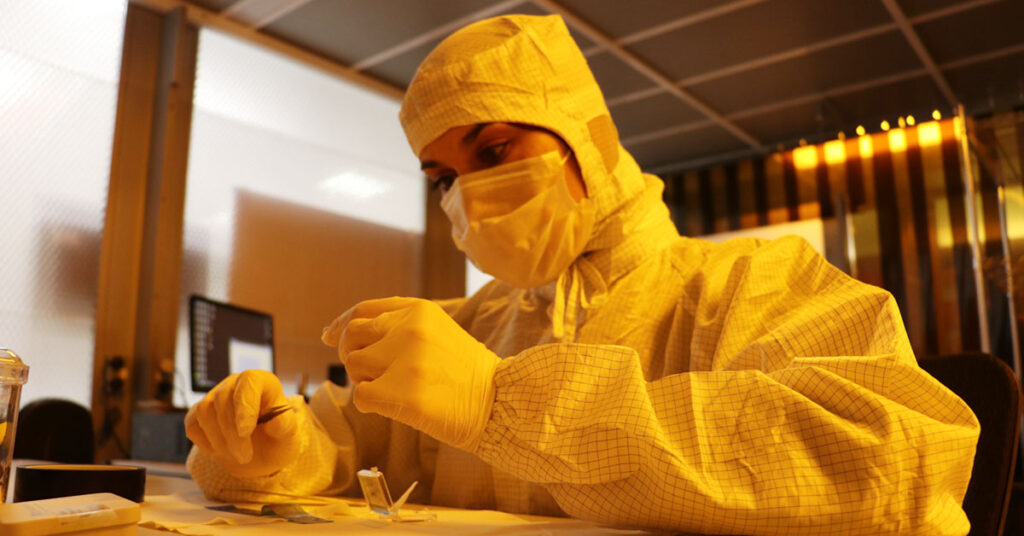“My teacher said I asked too many questions”: from curious to award-winning researcher
Categories: NEWS, INCLUSIVE RESEARCH, Awards
Tags: SDG5, AWARDS & PRIZES
Palestinian photonics researcher honored with OWSD-Elsevier Foundation Awards for Women Scientists in the Developing World

When Dr Ghada Dushaq was a child, nothing was safe from her prying mind and fingers. If there was a remote control on the coffee table, she would take it apart to figure out how it worked.
In second grade, her curiosity got on her teacher’s nerves.
“She complained to my mom that I was asking too many questions,” Ghada recalled. “‘Why does a banana have no seeds? If you say that our shadow is like a mirror, why don’t we see the exact color? … ‘I don’t know how to answer her.’”
Fortunately, her parents were educators who encouraged her exploration. Today, she continues her exploration as a Postdoctoral Associate in the Photonics Research Lab at NYU Abu Dhabi. Through her research, she is coming up with new and innovative materials for high-speed optical communications. Now, she is being recognized globally as a winner of the 2021 OWSD-Elsevier Foundation Award for Women Scientists in the Developing World. She will accept the award at the virtual 2021 AAAS Annual Meeting.
A child’s experiments shed light on how research is done
Ghada traces her interest in light and optics to her earliest experiments, when she was growing up in Ramallah, on the West Bank of Palestine. When she was 10, her parents got her a set of “magic rocks“ — clumps of metallic salt particles that grow into multicolored crystals when placed in a solution of sodium silicate and water. “I was amazed,” she said. “Like how do they enlarge and then come out in different colors?
“I did many experiments with them. I was separating them and putting them in different dishes to see what is the maximum size that these particles (can grow to) and what colors I could change, like if I mix the green with red. … And you shine light on them and you see a rainbow on the top – reflections of life inside this particle.”
She laughed. “It was something that might be nothing for others, but I think from that point, I started to see how research (is done),” she recalled. “It was just a child thinking of things, but it was (based on) principles of how we actually do research.”
Read the full article on Elsevier Connect: “My teacher said I asked too many questions”: from curious to award-winning researcher“, Alison Bert, 8 February 2021.

















